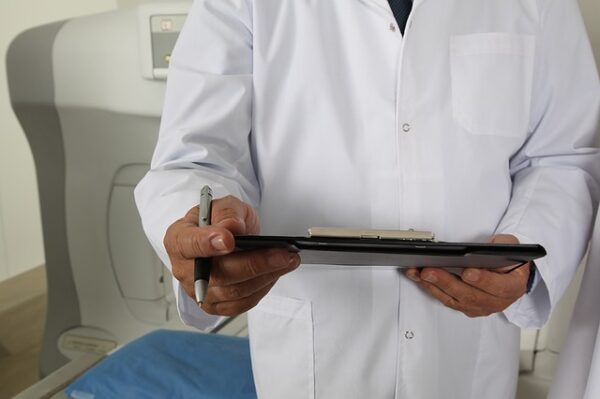There are many ways that individuals can recover from fentanyl addiction and fentanyl overdose. Medication-assisted treatment (MAT) is one of the most beneficial and most effective treatments offered. Still, as some may be hesitant about the process, learning about MAT can foster motivation for pursuing treatment as well as promoting education regarding what to expect.
At Buena Vista Recovery, clients recovering from fentanyl addiction and fentanyl overdose are encouraged to utilize MAT. This program can be customized to meet the unique needs and recovery goals of each client. Furthermore, alongside MAT, clients are welcome to partake in individual therapy, group therapy, specialized counseling, and other forms of compassionate healing.
What Is Medication-Assisted Treatment (MAT)?
MAT uses medications paired with counseling, therapy, and holistic care to provide a whole-person approach to addiction recovery. The medications prescribed and managed during this treatment are dependent on the substance the client is in recovery from. Other factors of medication, such as dosage, are also dependent on the client’s unique needs and goals for recovery.
For instance, clients recovering from alcohol use disorder (AUD) may be recommended medications such as acamprosate, disulfiram, or naltrexone. Those with opioid use disorder (OUD), on the other hand, may be recommended buprenorphine, methadone, or naltrexone drugs. Furthermore, naltrexone is also an opioid overdose prevention medication. MAT is typically the most beneficial for clients in recovery from OUD.
How Does Buena Vista Recovery Implement Medication-Assisted Treatment in Fentanyl Addiction Recovery?
MAT is implemented in fentanyl addiction recovery through a supervised detoxification program. This program also promotes a transition into rehabilitation and relapse prevention. Buena Vista Recovery understands that addiction is a complex disease that requires care, assistance, and collaboration. By using this safe and effective opioid addiction treatment, the risk of relapse decreases. Moreover, the client’s physical, mental, and emotional well-being are all prioritized in MAT.
Three types of medications are used for opioid addiction, and each medication has different effects on the client pursuing MAT. Here is a brief overview of each of these medications:
Buprenorphine is typically the first medication used to treat OUD. The drug is prescribed as injections, tablets, or films. It works to diminish physical dependency on opioids, increase safety if an overdose were to occur, and lower the potential for opioid misuse.
Methadone is a drug for pain management that reduces opioid cravings, helps with withdrawals, and blocks the effects of opioids. Eventually, throughout MAT, the dosages decrease to avoid any dependency on the drug.
Naltrexone is a non-addictive medication that blocks the euphoric and sedative effects of opioids. By blocking these receptors, clients reduce their cravings for fentanyl. After using this medication in a guided program, clients have a reduced tolerance to opioids overall.
The Importance of Using Pairing Services With MAT
It is important to pair this MAT with other recovery services. Clients should be given a variety of options in treatment in order to achieve a fully healing recovery journey. This is done through an array of treatments and therapy. For example, clients may benefit from partaking in clinical group therapy to build a deeper connection and sense of hope with others. Others may find more peace in developing healthy coping mechanisms and means of expression through holistic therapies such as art therapy, music therapy, or meditative therapies.
At Buena Vista Recovery, individual therapy, group therapy, specialized counseling, and compassionate healing are all incorporated into treatment for optimal recovery results.
Individual Therapy, Group Therapy, and Specialized Counseling
The combination of individual and group therapies allows clients to explore their addiction recovery deeper with others and within themselves. In individual therapy/counseling, clients work towards understanding the underlying causes of their addiction, how to maintain abstinence, and how to avoid triggers. Individual therapy allows clients to explore their sense of self more deeply and create personalized recovery goals. Clients work to remain focused on their recovery and gain new coping mechanisms to lead a self-directed, sober lifestyle. Specialized counseling also allows clients to address co-occurring disorders or underlying causes related to mental health. This includes untreated trauma and trauma-related disorders.
In group therapy, clients build deeper bonds with others going through similar experiences. Group therapy also acts as a sense of hope as everyone shares their recovery and addiction experiences regardless of where they are on their recovery journey. Clients gain social skills with, respect for, and trust with others through group therapy sessions. They learn how to operate as members of their greater community. Group therapy also keeps clients from isolating themselves while recovering and instead informs the realization that their troublesome thoughts and feelings are also experienced by others.
Compassionate Healing
Buena Vista Recovery believes in compassionate healing. Clients are taken care of on the individual level, and provided with individually-curated treatment plans. Case managers, doctors, specialists, and therapists alike all work on the individual level with each client for optimal recovery. Clients’ comfort, safety, and security are put at the forefront of Buena Vista Recovery’s care.
While in a MAT program, clients are still able to explore their recovery paths by other means; in fact, they are encouraged to. Clients’ histories with addiction, family, mental health, drugs/alcohol, etc. are all taken into account when devising a treatment plan.
Here at Buena Vista Recovery, we offer medication-assisted treatment (MAT) for clients recovering from a fentanyl addiction or overdose. Beginning recovery from an opioid addiction can bring on many challenges, not limited to withdrawal symptoms and intense cravings. MAT works to curb these cravings and work against the effects of fentanyl. However, we understand that MAT is not the only treatment service that should be working at one time. Other services, like individual or group therapies, specialized counseling, and compassionate forms of healing, are all important elements of the full recovery journey. Recovery is about healing the whole person, and MAT is one component of that. Call us at (480) 741-9414 to learn more.




